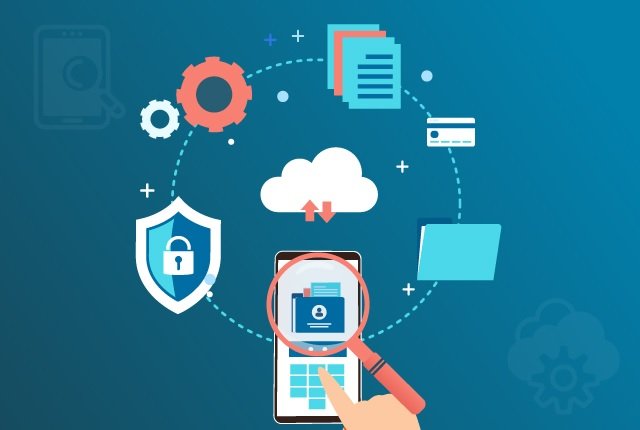The evolution of the cloud mobile phone ecosystem has completely transformed how mobile apps are developed, tested, and launched. This is an ecosystem that helps developers and users connect, scale up and access applications remotely without hassle.
However, ensuring mobile apps work smoothly in a cloud mobile testing setting brings challenges. From addressing security worries to tackling performance problems, quality assurance teams must follow top-notch practices to ensure apps work well on different devices and platforms.
As cloud-based infrastructure becomes more indispensable, quality assurance experts must develop strong strategies for testing apps in a cloud mobile phone environment. This involves using automation, testing across different web browsers, simulating networks, and evaluating security. Effective cloud mobile testing guarantees that mobile apps are dependable, scalable, and safe, meeting the needs of today’s rapidly changing digital landscape.
This blog will discuss the key quality assurance best practices for cloud mobile phone ecosystems, offering insights into techniques that enhance productivity and software excellence.
Understanding the Cloud Mobile Phone Ecosystem
The cloud mobile phone ecosystem is made up of cloud-based platforms that allow mobile apps to run smoothly on various devices. These platforms use cloud computing to offer storage, processing power, and networking capabilities, removing the need for traditional hardware setups. Cloud mobile testing lets apps be tested in real-world scenarios without needing lots of physical equipment.
This is handy for testing on different operating systems, device types, and network setups. The cloud mobile phone ecosystem brings benefits like cost savings, scalability, and remote access, becoming a crucial part of modern mobile app development.
Yet, testing in a cloud mobile phone setting comes with hurdles such as delays, security concerns, and complex integrations. Quality assurance teams must ensure their testing tools can adapt to the ever-changing cloud setups. Understanding how the cloud mobile phone ecosystem operates is the initial step in setting up an efficient cloud mobile testing plan.
Importance of QA in Cloud Mobile Testing
Quality assurance (QA) plays a vital role in cloud mobile testing by making sure that applications work well in different situations. Unlike regular testing, cloud mobile apps need thorough checking because of the various network conditions, device setups, and operating systems they operate in. Through detailed cloud mobile testing methods, QA teams can spot potential problems like performance issues, security risks, and compatibility glitches. Automated testing tools are essential in boosting efficiency, enabling testers to run tests on multiple devices at the same time.
Moreover, QA guarantees that cloud-based apps meet industry norms and regulations. In the cloud mobile world, real-time monitoring and continuous integration/testing (CI/CT) are crucial for maintaining top-notch app performance. Following effective cloud mobile testing procedures prevents downtime, improves user experience, and beefs up app security.
Key Challenges in Cloud Mobile Testing
Cloud mobile testing comes with its fair share of benefits and challenges. One significant challenge is the fluctuating network conditions. Traditional testing environments with static networks present challenges for cloud mobile apps because they must function perfectly across 4G, 5G, and Wi-Fi network connections while also facing additional security hurdles. Momentum debase systems face a greater risk of encountering security risks as well as experiencing data exposures.
QA teams defending against these risks must integrate robust authentication alongside encryption features into their cloud mobile testing approaches. Device differences present a serious problem throughout the cloud mobile phone sector.
Every application requires comprehensive testing across multiple operating systems while being evaluated on various screen sizes and hardware systems to prompt optimal cross-device performance. Insufficient testing can result in an application working exceptionally well on one device while displaying failures on different devices. Moreover, latency and performance issues can crop up due to delays in cloud server responses. QA teams have to engage in meticulous cloud mobile testing to fine-tune load balancing and guarantee smooth app performance across various cloud environments.
Best Practices for Automation in Cloud Mobile Testing
Automation plays a vital role in cloud mobile testing empowering QA teams to run tests on various devices efficiently. Through automated test scripts, bugs are swiftly identified, elevating the overall software quality within a cloud mobile environment. The selection of appropriate automation tools including Selenium, Appium, and TestComplete remains essential.
These frameworks allow for smooth cross-platform testing which helps QA teams run effective end-to-end tests. Parallel testing is another key practice to embrace. By simultaneously running multiple test cases on different devices, the testing process accelerates in a cloud mobile ecosystem, reducing time consumption and boosting productivity. Incorporating CI/CD pipelines into automation is equally vital.
With automated testing integrated into CI/CD, the cloud mobile application’s updates are safeguarded against new bugs. Early implementation of automated testing in the development lifecycle allows teams to proactively identify and rectify issues before they impact the end product.
How Can You Ensure Security in Cloud Mobile Testing?
Ensuring security in cloud mobile testing is vital due to the susceptibility of cloud-based applications to cyber threats. It is vital to establish robust security measures within a cloud mobile phone environment to safeguard user data. Data encryption serves as a fundamental practice, where encrypting data before transmission to the cloud prevents unauthorized access.
Moreover, incorporating authentication mechanisms like multi-factor authentication (MFA) further bolsters security levels. Penetration testing is another important aspect of cloud mobile testing that simulates cyberattacks to identify vulnerabilities before the exploitation occurs. Security audits and compliance checks are also crucial in strengthening application security.
Cloud service providers offer additional security features, including firewall protection and identity management, which quality assurance teams should utilize to elevate security within the cloud mobile phone ecosystem.
How Can You Optimize Performance in Cloud Mobile Phone Applications?
Ensuring a smooth user experience is crucial in a cloud-based mobile phone setting, as performance optimization plays a vital role. Issues like slow responses, crashes, and high memory usage can significantly impact how well an application functions.
Load testing, a fundamental aspect of cloud mobile testing, becomes essential. By simulating heavy user traffic, quality assurance teams can pinpoint performance bottlenecks and work on enhancing server response times. Implementing caching strategies is another effective way to boost performance.
Techniques like content delivery networks (CDNs) aid in speeding up data retrieval processes within cloud mobile phone applications. Real-time application performance monitoring stands out as a key practice. Cloud-powered monitoring tools offer valuable insights into server health, response times, and resource usage, empowering teams to optimize application performance proactively.
Why Are Cross-Browser and Cross-Device Testing Important in Cloud Mobile Testing?
In cloud mobile testing, making sure applications work well on different devices and browsers is very important. There are many types of devices, screen sizes, and operating systems, so it’s crucial to test applications properly to give users a good experience.
Tools like LambdaTest help QA teams test on over 5000+ devices at once, ensuring that cloud mobile apps work smoothly on Android and iOS devices. Testing the user interface and experience is also vital. Different screen sizes and designs can affect how users interact with the app.
By testing usability, teams can make sure the app is easy to use for everyone. Moreover, using cloud-based testing tools provides detailed reports and logs, helping teams understand test results and improve the app quality overall.
How Does Network Simulation Improve Cloud Mobile Testing?
Network conditions can change a lot, so simulating networks is crucial for testing cloud mobile apps. When we simulate different network speeds and delays, we can see how well the apps work in real situations. Quality Assurance (QA) teams use tools to imitate 3G, 4G, 5G, and Wi-Fi networks.
By testing in various network scenarios, teams can find problems and make apps better. Also, checking for weak signal spots and network issues can make apps more stable. Making sure apps work smoothly with low connection improves the reliability of cloud mobile apps.
How Can AI and Machine Learning Enhance Cloud Mobile Testing?
AI and Machine Learning have revolutionized cloud mobile testing by facilitating automated test executions while identifying recurring patterns and predicting upcoming problems. These technologies are optimizing efficiency within the cloud mobile phone environment by minimizing manual testing tasks and enhancing precision.
AI-powered test automation tools meticulously scrutinize extensive volumes of test data to pinpoint patterns, aiding QA teams in refining test cases and prioritizing critical concerns. The utilization of machine learning algorithms enhances test scripts by adapting to alterations in applications, thereby curbing maintenance efforts. Moreover, AI-driven analytics furnish valuable insights into application performance, user interactions, and possible shortcomings.
Predictive analysis plays a pivotal role in the proactive identification of bugs, thus mitigating production hitches in cloud mobile phone applications. By integrating AI and ML into cloud mobile testing processes, organizations can elevate testing efficacy, expedite release cycles, and elevate application quality.
How Does LambdaTest Enhance Cloud Mobile Phone Ecosystems?
LambdaTest serves as a strong cloud-based testing platform that enriches the cloud mobile phone environment through a scalable, real-device testing setup. This technology empowers QA teams to assess mobile applications and websites across a variety of actual real devices, iOS simulators, and Android emulators without the need for a physical device lab, resulting in substantial infrastructure cost savings without compromising application performance standards.
The standout feature of LambdaTest lies in its real device cloud with 5000+ environments, enabling testers to analyze apps under real-world conditions, offering precise insights into performance metrics such as network behavior, hardware interactions, and touch responses, which surpass the capabilities of simulators and emulators.
LambdaTest supports both manual and automated cloud mobile testing, seamlessly integrating with renowned automation frameworks like Appium, Espresso, and XCUITest. Moreover, LambdaTest facilitates network throttling, enabling QA teams to replicate diverse network conditions (2G, 3G, 4G, 5G) for assessing app behavior in varying connectivity scenarios.
Furthermore, the platform supports geolocation testing, allowing teams to validate app functionality across different global locations. For teams aiming to expedite their testing processes, LambdaTest’s parallel test execution feature accelerates testing by simultaneously running tests across multiple devices.
The inclusion of in-built Chrome DevTools aids in debugging, making LambdaTest a comprehensive solution for cloud mobile phone application testing. Equipped with automated testing, camera image injection, biometric authentication, and round-the-clock support, LambdaTest empowers QA teams to broaden test coverage, enhance performance, and optimize ROI within the cloud mobile phone ecosystem.
Conclusion
The cloud mobile phone ecosystem brings various advantages, like scalability, remote access, and cost-effectiveness. To ensure application quality in this environment, a strategic approach is necessary. By following best practices such as automation, security testing, performance optimization, and network simulation, QA teams can improve application reliability and user experience.
Taking a proactive stance in cloud mobile testing guarantees that applications remain secure, high-performing, and compatible with different devices. As the cloud mobile phone ecosystem progresses, QA teams must keep up with the latest testing methodologies to uphold application excellence.



